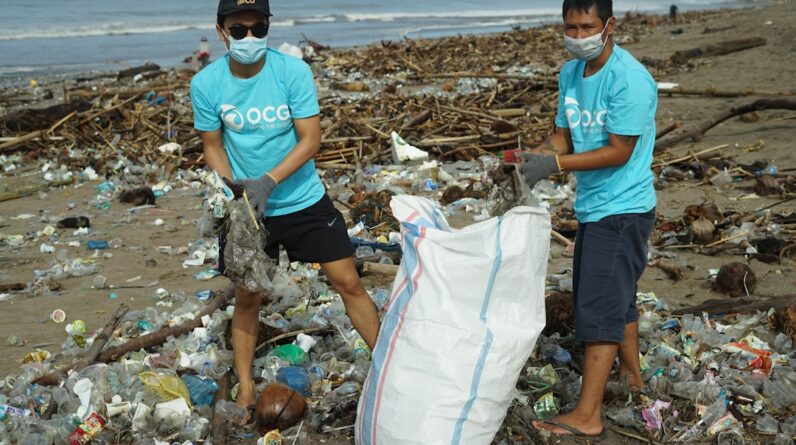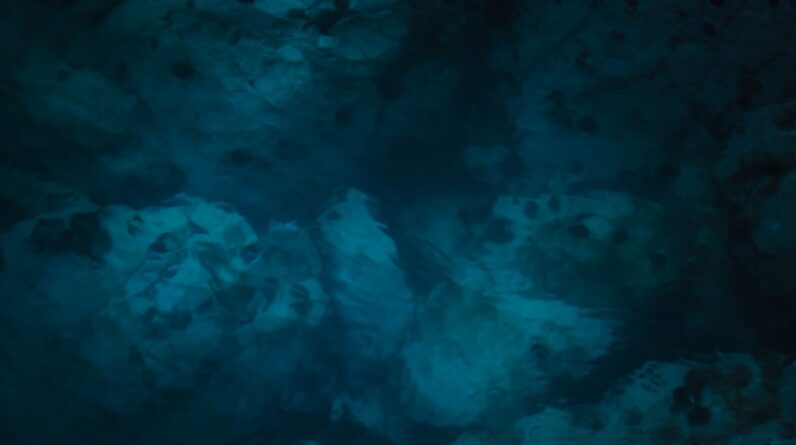
As you gaze out at the vast expanse of the ocean, it may seem like a serene and unchanging landscape. However, beneath the surface lies a crisis that is unfolding at an alarming rate. The oceans, which cover more than 70% of our planet, are facing unprecedented challenges due to climate change, overfishing, and pollution.
You may not realize it, but the health of our oceans is intricately linked to your own well-being. The oceans regulate our climate, provide food, and support countless species, including those that are vital to human survival. The current state of our oceans is dire.
Rising temperatures are causing coral bleaching, which devastates marine ecosystems. You might have heard about the alarming rate at which ice caps are melting, contributing to rising sea levels that threaten coastal communities. Additionally, the acidification of ocean waters due to increased carbon dioxide absorption is disrupting the delicate balance of marine life.
As you consider these issues, it becomes clear that the oceans are not just a distant concern; they are a critical component of the global ecosystem that directly impacts your life and future.
Key Takeaways
- Our oceans are in a state of crisis, with pollution and plastic causing significant harm to marine life.
- Pollution has a devastating impact on marine life, leading to habitat destruction, species extinction, and disruption of the food chain.
- Plastic plays a major role in ocean pollution, with millions of tons of plastic waste entering the oceans each year.
- Solutions for cleaning up our oceans include innovative technologies, international cooperation, and public awareness campaigns.
- Sustainable fishing practices are crucial for preserving marine ecosystems and ensuring the long-term health of our oceans.
The Impact of Pollution on Marine Life
The Devastating Impact on Marine Organisms
You may be surprised to learn that microplastics have been found in the most remote parts of the ocean, affecting even the deepest sea creatures. This pollution not only harms marine organisms but also poses risks to human health as these toxins enter the food chain.
The Consequences of Plastic Debris
Fish and other marine animals often ingest plastic debris, mistaking it for food. This can lead to malnutrition, internal injuries, and even death. As you reflect on this issue, consider how it affects not just individual species but entire ecosystems.
A Ripple Effect on the Environment and Human Health
Coral reefs, for example, are particularly vulnerable to pollution, which can lead to their decline and the loss of biodiversity they support. The consequences of pollution extend beyond the ocean; they ripple through food systems and ultimately affect your health and well-being.
The Role of Plastic in Ocean Pollution

Plastic has become synonymous with ocean pollution, and its role in this crisis cannot be overstated. You may have noticed how plastic products have infiltrated every aspect of modern life—from single-use bags to water bottles. Unfortunately, much of this plastic ends up in our oceans, where it breaks down into smaller particles known as microplastics.
These tiny fragments are not only harmful to marine life but also pose a significant threat to human health as they enter the food chain. The sheer volume of plastic waste is staggering. Millions of tons of plastic are dumped into the ocean each year, creating massive garbage patches that disrupt marine ecosystems.
As you think about your own consumption habits, consider how small changes can make a difference. Reducing your reliance on single-use plastics and opting for sustainable alternatives can help mitigate this growing problem. By being mindful of your plastic use, you contribute to a collective effort to protect our oceans from further degradation.
Solutions for Cleaning Up Our Oceans
Addressing ocean pollution requires a multifaceted approach that combines innovation, community action, and policy changes. You might be surprised to learn about the various initiatives aimed at cleaning up our oceans. From large-scale cleanup projects to innovative technologies designed to capture plastic waste, there is hope on the horizon.
Organizations around the world are mobilizing volunteers for beach cleanups and advocating for policies that reduce plastic production and consumption. One promising solution involves the development of advanced technologies that can efficiently remove plastic from the ocean. For instance, floating barriers and drones equipped with specialized nets are being deployed in key areas to collect debris before it can do further harm.
As you consider these solutions, remember that individual actions also play a crucial role in this fight. Supporting local cleanup efforts or participating in community initiatives can amplify your impact and inspire others to join the cause.
The Importance of Sustainable Fishing Practices
Sustainable fishing practices are essential for maintaining healthy ocean ecosystems and ensuring that fish populations remain viable for future generations. As you enjoy seafood, it’s important to consider where it comes from and how it was caught. Overfishing has led to significant declines in many fish species, disrupting marine food webs and threatening livelihoods dependent on fishing industries.
By choosing sustainably sourced seafood, you can contribute to the preservation of marine life. You may also want to explore how aquaculture can provide an alternative to traditional fishing methods. Responsible fish farming practices can help meet global seafood demand while minimizing environmental impact.
As you make choices about what you consume, consider supporting fisheries that prioritize sustainability and adhere to responsible management practices. Your decisions can influence market demand and encourage more fishers to adopt sustainable methods.
The Role of Government and International Organizations in Ocean Conservation

Governments and international organizations play a pivotal role in ocean conservation efforts. You may be aware of various treaties and agreements aimed at protecting marine environments, such as the United Nations Convention on the Law of the Sea (UNCLOS). These frameworks establish guidelines for sustainable use of ocean resources and promote cooperation among nations in addressing shared challenges like pollution and overfishing.
However, effective implementation of these agreements often requires political will and public support. As you engage with these issues, consider advocating for stronger policies that prioritize ocean health at local, national, and international levels. Your voice matters; by raising awareness about ocean conservation and supporting initiatives that protect marine environments, you can help drive meaningful change.
How Individuals Can Make a Difference in Ocean Conservation
While large-scale efforts are crucial for addressing ocean crises, individual actions also hold significant power in driving change. You might be surprised by how small lifestyle adjustments can collectively make a big impact on ocean conservation. Simple steps like reducing plastic use, participating in local cleanups, or supporting sustainable seafood choices can contribute to healthier oceans.
Moreover, educating yourself and others about ocean issues is vital for fostering a culture of conservation. Sharing information with friends and family can inspire them to take action as well. As you become more informed about the challenges facing our oceans, consider using your social media platforms or community networks to raise awareness and advocate for change.
Every action counts; by making conscious choices and encouraging others to do the same, you contribute to a larger movement dedicated to protecting our oceans.
The Future of Our Oceans: Hope for Restoration and Conservation
Despite the challenges facing our oceans today, there is hope for restoration and conservation if collective action is taken now. You may find inspiration in success stories from around the world where communities have come together to restore damaged ecosystems or implement sustainable practices that benefit both people and marine life. These examples demonstrate that positive change is possible when individuals, organizations, and governments work collaboratively toward common goals.
As you look toward the future, consider how your actions can contribute to a healthier planet. The journey toward ocean conservation may seem daunting, but every effort counts—whether it’s advocating for policy changes or making sustainable choices in your daily life. By fostering a sense of stewardship for our oceans and inspiring others to join you in this mission, you can help ensure that future generations inherit vibrant and thriving marine ecosystems.
Together, we can turn the tide on ocean degradation and create a brighter future for our planet’s most precious resource: its oceans.
If you are passionate about saving our oceans, you may also be interested in learning about how healthy forests serve as biodiversity reservoirs. Check out this article on Biodiversity Reservoir by Having Healthy Forest to understand the crucial role that forests play in maintaining a diverse range of species. By protecting our forests, we can also help protect our oceans and the delicate balance of our planet’s ecosystems.
FAQs
What are the main threats to the health of our oceans?
The main threats to the health of our oceans include plastic pollution, overfishing, climate change, and habitat destruction.
How does plastic pollution affect our oceans?
Plastic pollution in our oceans poses a serious threat to marine life, as animals can become entangled in plastic debris or mistake it for food, leading to injury or death.
What is overfishing and how does it impact the oceans?
Overfishing occurs when fish are caught at a rate faster than they can reproduce, leading to a decline in fish populations and disrupting the balance of marine ecosystems.
How does climate change affect the oceans?
Climate change leads to rising sea levels, ocean acidification, and changes in ocean temperatures, all of which have significant impacts on marine life and ecosystems.
What are some solutions to clean our oceans and protect marine life?
Solutions to clean our oceans and protect marine life include reducing plastic use, implementing sustainable fishing practices, reducing carbon emissions to mitigate climate change, and establishing marine protected areas.





